MSN in Nursing Education Online Degree Overview
The critical shortage of nurses in healthcare today is due in part to the shortage of qualified nurse educators to teach tomorrow’s nurses.
If you are a Registered Nurse and interested in a career in teaching, consider earning your MSN in nursing education through an online master program.
Nurse Educators are employed in many educational settings including colleges, universities, hospital-based nursing schools and other post-secondary institutions. Graduate nursing programs and nursing programs offer pathways to advance your career in nursing education. As a nurse faculty member, you will impart valuable knowledge and skills to future nurses - based on your own education and experience in clinical and academic settings and collegiate nursing education.
This program format caters to working nurses and allows them to balance educational goals with personal and professional responsibilities. Nursing education degree program and nursing education programs provide the necessary skills and experiences for aspiring nurse educators.
The MSN nurse educator program and MSN nursing education program are designed to prepare you for a rewarding career in nursing education. Nursing education courses, including advanced health assessment, are integral parts of the curriculum.
Nursing salaries for nurse educators vary widely in the U.S. and are based upon many factors including geography, job description, specialty and experience. According to the Bureau of Labor Statistics, the median salary in May 2023 for Postsecondary Nursing Instructors and Teachers in the United States was $80,780 per year, with a much faster than average projected job growth of 8 percent between 2023 and 2033. The National League for Nursing (NLN) sets standards for nurse educators, ensuring they are well-prepared to teach nursing students.
Want to learn more? Watch our most recent Virtual Information Session.



